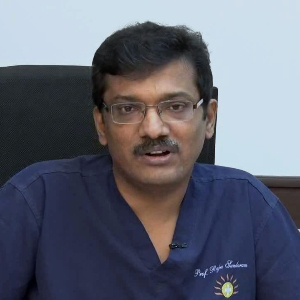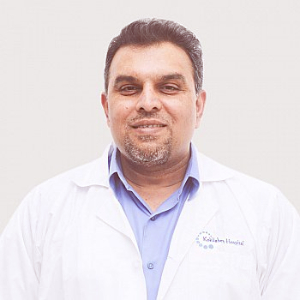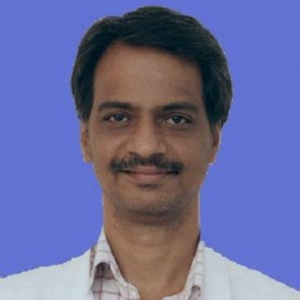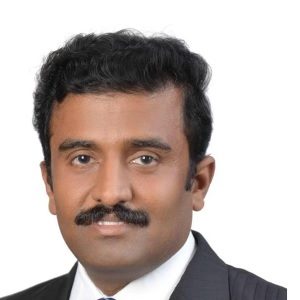Best Doctors in India for Tracheostomy
- Surgical Oncologist, Chennai, India
- Over 25 years’ experience
Profile Highlights:
- Dr. Rajasundaram is a highly successful and experienced Surgical Oncologist with great expertise in performing laparoscopic cancer surgeries.
- He has over 25 years of experience in Surgical Oncology and has performed more than 15,000 cancer-related surgeries till date.
- His expertise lies in the treatment of various types of cancers including organ cancers, solid cancers, blood cancers, inherited cancers, and benign tumors.
- ENT, Head & Neck Onco Surgeon; Mumbai, India
- Over 30 years’ experience
Profile Highlights:
- Dr. Sanjiv Badhwar is a well-known Head and Neck Onco surgeon in Mumbai.
- He specializes in head and neck surgery for cancer patients, cochlear implant surgery, robotic surgery to remove cancer of the head and neck region, voice disorder surgery, and other types of ENT surgeries.
- He holds an experience of over 30 years as an ENT specialist and has received advanced training from the Voice Institute in Portland, USA
- Surgical Oncologist, Hyderabad, India
- Over 20 years’ experience
Profile Highlights:
- Dr. Sharan Kumar Shetty is a renowned Head and Neck Surgical Oncologist in Hyderabad currently associated with CARE Hospitals.
- He has experience of over 20 years in the field and is an expert in the treatment of cancers affecting the head and neck regions such as the oral cavity, larynx, pharynx, trachea, sinus, salivary gland, nose, and throat.
- Dr. Sharan Kumar Shetty’s expertise also lies in reconstructive cancer surgeries using free flap and pedicled flaps.
- Surgical Oncologist, Gurugram, India
- Over 10 years’ experience
Profile Highlights:
- Dr. Shilpi Sharma is a highly experienced surgeon and oncologist who has previously worked in prestigious institutions such as Tata Memorial Hospital, and National Cancer Institute.
- Throughout her career, she has conducted various high-quality research in the field of head and neck cancers. Dr. Shilpi Sharma has also been part of various randomized and nonrandomized trials and has also been involved in clinical and translational research.
- She is also a member of ICMR guideline committee which formulated the ICMR guidelines on tongue cancers.
- Surgical Oncologist, Head & Neck Surgical Oncologist; Chennai, India
- Over 18 years’ experience
Profile Highlights:
- Dr. Kannan S is a prominent Otorhinolaryngologist in India with nearly 18 years of experience.
- He holds a position as a Consultant Head and Neck Oncosurgeon in Apollo Cancer Institutes, Chennai.
- Being an MS and MBBS in Surgical Oncology, his interests led him to treat many ENT problems.
- He published several papers related to the same. He regularly attends conferences in his field and has also been awarded for his work.
Best Hospitals in India for Tracheostomy
CK Birla Hospital, Gurugram
- City: Gurugram, India
Hospital Highlights:
- The CK Birla Hospital in Gurugram is a NABH-accredited multi-specialty hospital.
- The hospital strives to increase the quality of healthcare by focusing on UK NHS nurse and midwife training requirements. Policies and practices derived from the National Institute for Health and Treatment Excellence (NICE) recommendations in the United Kingdom ensuring that a strong focus on safety, high-quality clinical care, and sanitation is maintained.
- The hospital’s cutting-edge technology and facilities allow for real-time communication and seamless collaboration among caregivers, ensuring accuracy and the best possible results. Those with foreign experience and accreditations make up part of the hospital’s team of clinicians.
KIMS Hospital, Hyderabad
- City: Hyderabad, India
Hospital Highlights:
- KIMS Hospital (a brand name of Krishna Institute of Medical Sciences) is one of the largest and best multi-speciality hospitals in Hyderabad. The hospital provides various treatments to an enormous number of patients.
- The hospital has a capacity of more than 3000 beds. KIMS Hospitals offers different healthcare services in more than 25 specialities and super specialities.
- The hospital is equipped with modern medical equipment and technology. It has robotic equipment to provide minimal invasive techniques for patients.
- The hospital is aimed at providing world-class healthcare facilities and services at an affordable cost for patients.
- The various specialities and departments of the hospital include neurosciences, gastroenterology & hepatology, robotic science, reproductive sciences, dental science, oncological sciences, organ transplantation, heart and lung transplantation and mother and child care.
Fortis Hospital, Shalimar Bagh
- City: New Delhi, India
Hospital Highlights:
- Fortis Hospital in Shalimar Bagh is a multi-super specialty hospital that strives to provide world-class patient care by leaving no stone unturned.
- Fortis, Shalimar Bagh, with 262 beds and a 7.34-acre footprint, provides the best level of medical care through its team of doctors, nurses, technicians, and management professionals.
Reliance Hospital, Mumbai
- City: Mumbai, India
Hospital Highlights:
- Reliance Hospital is one of the best super-specialty care hospitals in Navi Mumbai.
- The main purpose of this hospital is to become a trustworthy place for the best health and hope for society. The hospital is well connected to the suburbs of Mumbai and Navi Mumbai.
- The hospital has various specialty departments, viz., Accident & Emergency, Anesthesiology, Dental Services, Dermatology, Diabetology, Dietetics Nutrition, Endocrinology, ENT, Gastroenterology, General Surgery, Gynaecology And Obstetrics, Hepato Pancreato Biliary Surgery, Infectious Disease, Internal Medicine, Interventional Radiology, Laboratory Medicine, Minimal Access Laparoscopic Surgery, Nephrology, Neurosciences, Opthalmology, Orthopaedics, Paediatrics, Pain Management Palliative Care, Physical Medicine Rehabilitation, Plastic And Reconstructive Surgery, Psychiatry, Pulmonary Medicine, Radiology, Rheumatology, Transplant, Urology Andrology, Vascular Surgery
Lilavati Hospital & Research Centre, Mumbai
- City: Mumbai, India
Hospital Highlights:
- Lilavati Hospital & Research Centre is India’s premier multi-speciality tertiary care hospital and has been recognised as a global medical excellence centre.
- Lilavati Hospital & Research Centre has built an unrivalled level of trust with its patients over the years, thanks to a solid foundation that comprises cutting-edge facilities, the best medical competence, research, education, and charity endeavours.
- The hospital is quite proud of the fact that it now serves patients from all kinds of backgrounds, not just from the United States but from all around the world.
- The hospital has a total of 323 beds, one of the largest Intensive Care Units (ICUs), 12 Operation Theatres with modern amenities, over 300 consultants, and almost 1,800 personnel.
MGM Healthcare, Chennai
- City: Chennai, India
Hospital Highlights:
- Located in Chennai, India, MGM Healthcare is a top multispecialty hospital that provides all medical services under one roof.
- Since its founding in 2019, MGM Healthcare has quickly become a leading national referral centre, creating several innovative flagship initiatives.
- MGM Healthcare combines next-generation medical and digital technologies to provide better patient results.
- With 12 centres of excellence, more than 400 inpatient beds, 100 intensive care unit beds, and 24/7 emergency care, MGM Healthcare leaves no chance in redefining the patient experience in Chennai.
- MGM Healthcare boasts 250+ expert doctors across 30+ departments, including Cardiology, Pulmonology, Neurology, Obstetrics & Gynaecology, and more.
- They house 12 specialized Centres of Excellence, including Neurosciences, Orthopaedics, and Multi-Organ Transplantation.
- Their team of doctors, nurses, and paramedics works together to give every patient individualized treatment.
Tracheostomy
Tracheostomy is a medical procedure in which the doctor will create a hole in the front of the neck and into the trachea (or windpipe). This is done to place a tracheostomy tube into that opening that stays open for breathing. The tracheostomy tube allows the entry of air into the lungs. The air bypasses the nose, mouth and throat to allow breathing through the tube. The hole in the neck is commonly called a stoma.
Reasons for Tracheostomy
There are various reasons, including airways restriction, because of which people undergo a tracheostomy. Your doctor may perform a tracheostomy, when you have a blocked airway, during an emergency. The procedure is of utmost use when normal breathing becomes difficult because of other diseases or problems. You may have to go for tracheostomy if you have:
- An infection
- The need for a ventilator or respiratory support
- Defects in the airway
- Chronic lung disease
- Underwent facial surgery
- Injury on the chest wall
- Anaphylaxis
- Neck cancer
- Dysfunctioning diaphragm
- Laryngeal injury
- Airway burns due to inhalation of harmful material
- Airway obstruction due to the presence of foreign bodies
- Severe mouth injuries
- Coma
- Facial burns
- Obstructive sleep apnea
- Vocal cord paralysis
- Laryngectomy
- Tumors
- Neck injuries
EMERGENCY CARE
Although most of the surgeons perform this procedure in a hospital setting, they may find it necessary to create the opening in the person’s throat while at the site of the accident, if it is an emergency. Emergency tracheostomies not just carry the risk of complications, they are also difficult to perform.
Preparation for Tracheostomy
What to expect?
During the procedure
Mostly, the doctors perform the procedure in an operating room so that you remain unaware of the entire procedure. He or she will inject local anesthesia (sleep medicine) into your body to numb the throat and the neck. He or she will use local anesthesia if there are visible risks with general anesthesia or if they are performing the procedure outside the operating room. You may opt for:
Surgical Tracheostomy
Surgical Tracheostomy is performed in a hospital room, your surgeon will make a horizontal incision (cut) through your skin in the lower part of the front of the neck. He or she will carefully pull back the surrounding muscles to cut a part of the thyroid gland and expose the trachea or the windpipe. Near the base of your neck, your surgeon will create an opening at a specific spot on your trachea.
Percutaneous Tracheostomy
In the front of the neck, your doctor will make a small incision at the base. He or she will introduce a special lens through the mouth so that they can view the inside portion of your throat. He or she will then guide a needle into the trachea using the view of the throat, to create an opening and will then increase it up to the size of the tube.
After the procedure
You may need to stay back in the hospital as you heal.
- Care for the tube: The nurse will teach you to change or clean your tracheostomy tube so as to prevent any infection and decrease the chances of any risks.
- Speaking: Depending on the type of tube, you will be able to speak with the tracheostomy tube. Your speech therapist or nurse may recommend you some alternatives for communicating and how you can use your voice again to speak.
- Eating: You will receive all the nutrients through an IV (or Intravenous line) inserted in your body or a feeding tube that passes through your nose or mouth. You may also have a tube directly inserted into your stomach. Your speech therapist will work with you when you will be able to eat, to help you with coordination and regain muscle strength needed for swallowing purposes.
- Managing other effects: There are some other effects related to tracheostomy. Your healthcare time will guide you and teach you to care for other common effects. They may teach you to use a suction machine for clearing away the secretions from the airway or your throat.
Results
While tracheostomy is temporary in most of the cases, it may be permanent in some. The procedure provides an alternative breathing route until the medical ailments resolve within your body. If there’s a need for you to be on a ventilator for an indefinite time, this procedure can be the best possible solution.
Your healthcare team will take care of you and determine when you can remove the tracheostomy tube without any chances of complications. The opening will close down after some time and heal on its own. However, your surgeon may also opt to closet the opening surgically.
Risks of Tracheostomy
Any kind of surgery or medical procedure comes with its own risks like bleeding and infection. Although it is rare, you may catch an allergic reaction to the anesthesia (sleep medicine) used for the medical procedure. The risks associated with Tracheostomy are:
- Bleeding
- The thyroid gland, present in the neck, getting damaged
- Lung collapse
- Scar tissue present in the trachea
- Erosion of the trachea (rarely)
- Misplacement of the tracheostomy tube
- Subcutaneous emphysema (trapping of air under the skin on the tissue)
- Pneumothorax (air buildup between the lungs and the chest wall)
- Hematoma or collection of blood that may cause breathing problems.
Long term complications
The longer the tracheostomy, the higher will be the chances of the complications. They may include:
- Damage to the trachea
- Infection around the tracheostomy
- Narrowing of the trachea
- Infection in the bronchial tubules and trachea (Tracheobronchitis)
- Scarring of the trachea
- Infection in the lungs (Pneumonia)
- Obstruction of the tracheostomy tube
- Tracheoinnominate fistula














